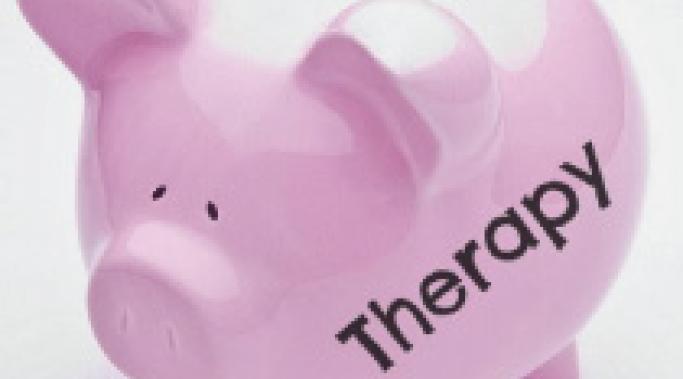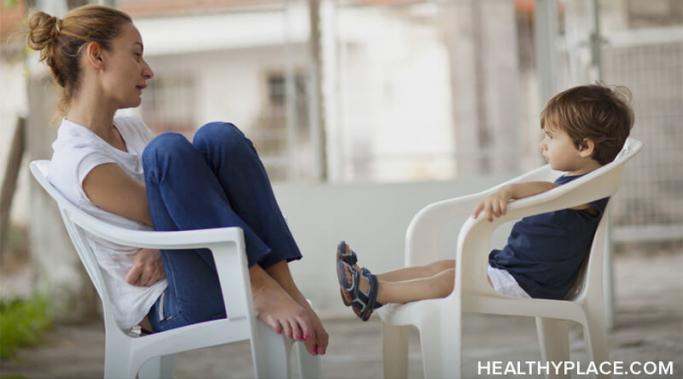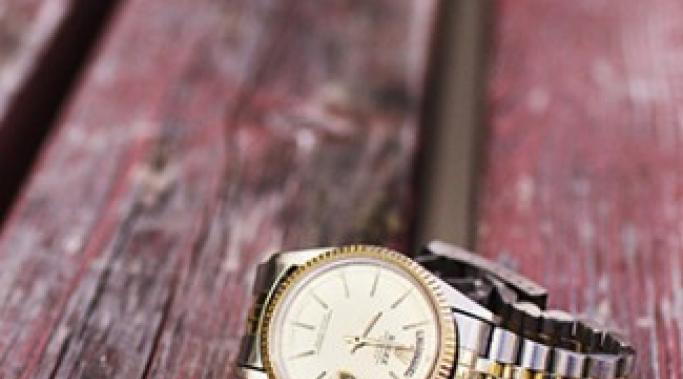Blogs
I spent nine months on the borderline personality disorder (BPD) unit at Larue Carter Memorial Hospital in Indianapolis. At the time, it was the only inpatient unit specializing in schema therapy for BPD in the country. Recently I learned that this unit, which changed and probably saved my life, is now closed. It made me think about what happens to patients when psychiatric hospitals close--it rarely ends well.
When it comes to my recovery from anorexia, like in a lot of areas of my life, I strive to be fiercely independent. Imagine a petulant toddler yelling, "I do it self!" at the top of her lungs and pushing people away while simultaneously crying because she can't actually "do it self." Excellent. You have just drawn yourself a picture of my first three years of recovery failures.
Have you read the story of Bluebeard? In short, Bluebeard, an abusive predator, marries a naïve girl and gives her all the keys to his castle, but tells her to never use the tiny key with the beautiful scroll top. So, of course, the girl seeks the door the key will open. She unlocks the door and sees the dead bodies of Bluebeard's former wives. In some versions, the girl escapes Bluebeard's wrath and in others she dies.
Initially, I equated the story of Bluebeard's wife with myself as a formerly abused woman. After reading Women Who Run With the Wolves by Clarissa Pinkola Estes, Ph.D., I agree with the author that Bluebeard is the voice in our heads that traps us in abusive relationships (and many other foul situations).
Early in recovery, a young woman who had gotten sober several years before me gave me some good advice. She said that when I felt like drinking, I should make a list of possible actions I could pursue and rank them in order from least destructive to most destructive. Actions such as praying or taking a bath would probably rank high on the list, while drinking and suicide would come in last. In the middle, I might list such things as shirking responsibilities to watch TV all day or going on a reasonable shopping spree. (I should mention, I have not struggled with shopping addiction.) When I felt the urge to drink or use, I was to start at the top of the list and work my way down.
As parents of children with mental illness, we witness extremely bad behavior. We know it is not okay to be disrespectful or put holes in walls. Yet, traditional discipline methods don't work. We become desperate for effective parenting tools for our kids (The Challenge of Difficult Children Homepage). The key is to understand what is driving the bad behavior. Is it the kid or the mental illness?
We all have days when the morning alarm sounds like a million knives stabbing us in the ears. Everyone has experienced waking up in the worst of moods and not being able to kick yourself out of the funk. On these days, no matter who tries to talk you into a better state of mind or make you laugh, the gestures remain hopeless and so do you.
Some people are able to find ways to turn their mind around and push on towards positivity. Other people, however, grow angry with themselves and that anger doesn’t help the already frustrating situation. When you begin your day in an unhappy mode, it takes a lot to really switch on the positivity, and for those who self-harm, the only way to switch on that happiness may be by making a self-injury mark on his or her skin.
One of the most powerful emotions for me, and many people I work with, is disappointment. The lack of control, anxiety, and confusion that it brings about messes with my confidence. I'm sure you can relate. A friend that cancels plans at the last minute, even if it's due to totally reasonable circumstances can get your insecurity rolling, and lead you down the path of doom and gloom.
Being broke and having depression go hand-in-hand. I'm really sick of it. Even if money can't buy happiness, it can buy basic necessities like food and shelter. It's pretty hard to be happy without those things. I need more money, but my symptoms of depression make finding a job really difficult.
While the average person in their twenties focuses on building a resume, I've been focused on surviving my depression. Instead of attending post-secondary school, I've been in depression treatment, learning about my own experiences and how to cope in everyday life. Living with depression is a full time job.
Healing is all about being able to shift out of survival mode, complete the trauma response, consolidate memories and move into a life focused on things other than threat and danger, safety and control. If you’re in a situation in which trauma maintains a high level of threat, either ongoing or sporadically (i.e., an abusive relationship, a war zone), it’s going to be very tough to heal posttraumatic stress disorder (PTSD). In that case, it can be beneficial to switch to a different strategy: Bulking up your trauma coping skills.
Anxiety can be beastly. It can take hold of our thoughts, feelings, and behaviors. Anxiety seems to take control of our physical body, too. How on Earth do we combat such a beast? How about with bubbles?









